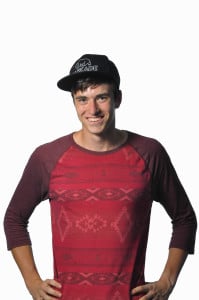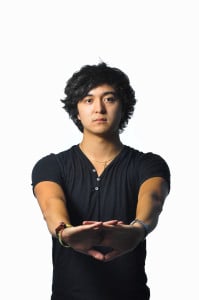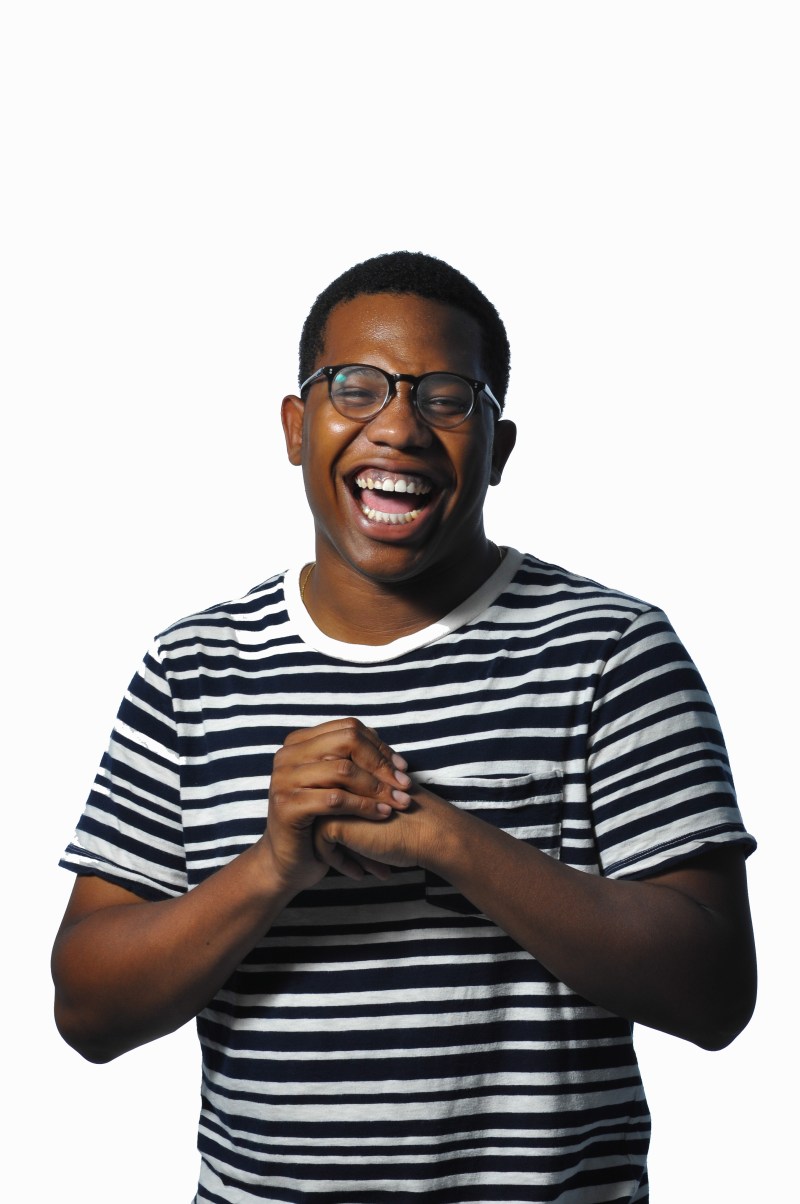It’s dusk on a Saturday evening, and Theta Delta Chi’s Cave Party, a highly publicized all-campus event, is in full swing. In an impressive demonstration of creativity, willpower, and masking-tape mastery, the brothers of TDX have transformed their common space into a convincing cave, the perfect setting for a night of prehistoric debauchery. But though the decorations are certainly captivating, all eyes are on the DJ – Langston Peoples ’17, who’s holding court at the east end of the main dance floor.

Clad in white fur, he’s in full command of the party playlist, seamlessly shifting from bass-heavy bangers to crowd-pleasing throwbacks. The partygoers are electric with energy, willing to follow Peoples’ every musical move. There’s a science to his selection, an intention behind each transition. He knows what every good DJ knows – that music can make or break any party, no matter how elaborately planned. In the end, music is what the people came for, and music is why they’ll stay.
Though other opportunities for listening and discovery abound, parties at fraternities, co-ops and self-ops constitute some of Stanford students’ most memorable musical experiences. The songs that are played at these events ring in our ears, crop up on our personal playlists, and comprise the soundtrack of our lives. That being said, the role of DJ carries a considerable amount of responsibility. “The power [we have] is very stressful… you just sit and think, ‘what do I play? Will people be mad at me? Are they having a good time?’” says Peoples, who has shouldered musical responsibilities at multiple TDX events since pledging last spring.
Especially at all-campus events, which tend to attract the broadest range of tastes, maintaining the energy and engagement of partygoers is key. “In preparation for an all-campus frat party… the main goal is to please the crowd,” says Mike Becich ’18, who DJs at Sigma Nu. To accomplish this, Becich often relies on “bangers,” taking care to keep song tempos similar and execute smooth transitions between tracks. Both he and Peoples frequently employ throwback jams, which draw reliably positive responses. Regardless of what songs they might play, most DJs pay careful attention to the body language of the crowd, changing the genre, tempo, and mood of their selections accordingly. As Peoples puts it, the challenge of a successful DJ set lies in finding a balance between “curating and collaborating” with the listeners at hand.

But for many DJs, this is easier said than done. Many of the individuals interviewed for this piece have spent their lives immersed in music, trawling obscure corners of the Internet for new tracks and even mixing their own. As a result, they develop wide-ranging tastes that don’t always align with those of the crowd.
Charles Calvet ’17, a producer/DJ who frequently performs at Phi Psi parties and high-profile off-campus events, expressed frustration with what he perceives as a lack of openness to more eclectic music. In his opinion, partygoers seek familiarity at the expense of truly fulfilling musical and social experiences. “An all-campus frat party is not very fun for the majority of people,” Calvet says. “People will often go to a party, then leave… and get on with their lives. I want people to leave a party being like, ‘Holy sh*t, that was so great, I heard all this cool stuff.’ It’s such a great feeling, and there’s no reason why it shouldn’t be that great every time.”

Sacrificing great for good might be an unavoidable occupational hazard for most DJs, who are not eager to feel the wrath of the crowd. Becich seemed particularly sensitive to the wants and needs of partygoers, describing certain song choices as “safe” or “unsafe.” But Calvet thinks that DJs have the power and responsibility to shift musical paradigms – and change the campus party culture in the process.
“On some level, people are very uncomfortable with [frat parties]… at the end of the day, everyone is like ‘Yeah, that was kind of gross’”, he says. Instead of the hectic, sexualized EDM-fests that these events often become, he imagines an experience marked by trust in the DJ, openness to unfamiliar genres and styles, and a collective appreciation of new music. “No one really wants to admit that [frat parties] are something they don’t enjoy,” he says. “So things stay the same… there’s a potential for this to be way more than what it is.” And that potential, he insists, lies in the DJ’s freedom to expose the crowd to new and unexpected music.
Some fraternities and co-ops have embraced this freedom in their musical programming. Peoples cites the Enchanted Broccoli Forest as an example, expressing admiration for their efforts to book up-and-coming Bay Area artists and introduce audiences to unconventional remixes and musical styles. He also views TDX’s recent Easy Groove event, which hosted a number of live student bands, as a resounding success. Many students were impressed by its relaxed, personal feel – a refreshing departure from the blaring frenzy of many all-campus events.
Indeed, for Peoples – and many other DJs – music is an intensely personal interest, one that they take deep pride in sharing. Though DJing an event can take the form of a science, with playlists and transitions carefully calibrated to sustain the energy of a crowd, it can also be an art, an intimate discipline with the power to forge both moods and memories. This power is not lost on Peoples, nor the numerous other DJs who share their expertise and passion at campus events. “I think it’s beautiful to be able to curate a playlist with other people in mind, wanting to show people new things and set the vibe,” he concludes. “You’re really creating somebody’s night.”
Contact Clare Flanagan at ckflan ‘at’ stanford.edu.
